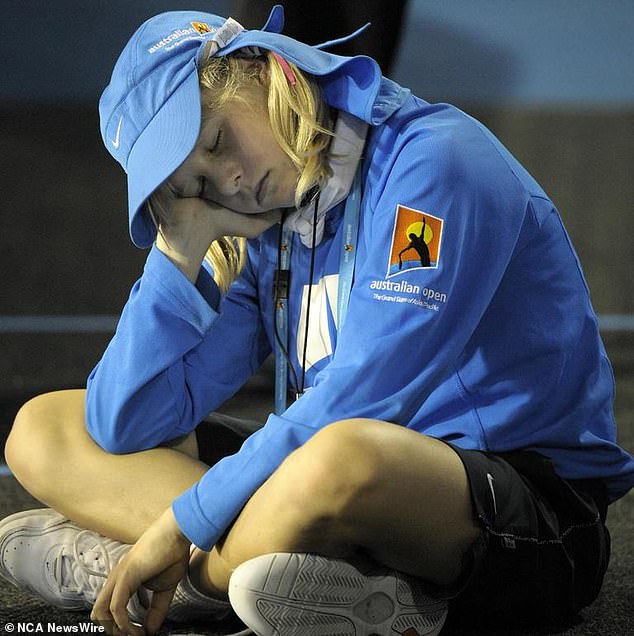Why the Australian Open can’t stop matches finishing as late as 4am despite huge rule change
- Grand Slam has a history of matches starting and ending very late
- Thanasi Kokkinakis’ 4am finish against Andy Murray took place in 2023
- WTA and ATP have introduced new rules to combat the problem
Brutal early morning finishes, such as last year’s Andy Murray-Thanasi Kokkinakis ‘farce’, will not be entirely avoidable at the Australian Open, despite significant changes to the tour rules.
New scheduling requirements have been introduced by the WTA and ATP with immediate effect in an effort to reduce the number of late finishes to overnight sessions.
But tournament organizers at Melbourne Park, who are not bound by the new rules, said little can be done to prevent bizarre outliers such as Murray and Kokkinakis’ 4.05am finish in 2023.
The new rules, which force night sessions to start at 7.30pm and prevent matches from taking place on the pitch after 11pm, will be trialled at tournaments in 2024 before being reviewed at the end of the year.
Andy Murray won an epic Open match against Thanasi Kokkinakis in 2023 (pictured) – but most of Australia was asleep when match point popped up around 4am

Kokkinakis smashes his racket in the defeat – and Australian tennis fans weren’t very impressed either when they couldn’t stay up to see the result
Day sessions will also be limited to three matches, but the Australian Open had already preceded the changes with its own attempt to tackle late finishes by adding an extra day to the match and reducing it to two-day matches.
It came after Murray called his victory last January a ‘farce’, saying his match had started too late at 10pm.
“If my kid was a ball boy for a tournament and he comes home at 5 in the morning, as a parent I’ll snap at that,” he said at the time.
Extreme heat or wet weather could put pressure on the Open schedule this year, but the WTA and ATP will consider “waivers” to hold matches at later times, the tours said in a joint statement.
“The number of late match finishes (defined as matches finishing after midnight) has increased significantly in recent years, negatively impacting players and fans,” the statement said.
‘This is related to an increase in the average match duration on tour.’

A ballgirl is seen taking a nap during an Australian Open match. New WTA and ATP rules to enforce earlier finish times are not in effect at Melbourne Park this year
Australian Open sources were confident that reducing to two-day matches would limit most of the threat of late night sessions, as the third match turning into the night session had been responsible for most late finishes in previous years.
Lleyton Hewitt and Marcos Baghdatis played until 4:33 a.m. in their third-round match in 2008, after starting at 11:47 p.m. due to a daytime marathon ultimately won by Roger Federer.
ATP president Andrea Gaudenzi said tackling late finishes had become a ‘priority issue’ as it became increasingly common.
“It is imperative that we evolve and adapt to the demands of the modern game, especially when it comes to player health and fan experience,” he said.
“We are optimistic about the impact we can make on both fronts, now and in the longer term.”
